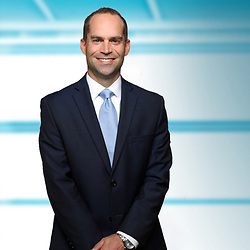Expanded Scope of Employers' Potential Liability For Criminal Acts of Supervisors Toward Employees
A recent decision by the United States Court of Appeals for the Seventh Circuit expands the scope of Illinois employers' potential liability for intentional torts (a civil wrong resulting from an intentional act) committed by supervisory employees against other employees outside of work, where the employer has been negligent.
In Anicich v. Home Depot, U.S.A., Inc., et al., the administrator of the estate of a deceased employee and her unborn daughter, who was murdered by a supervisor, filed suit alleging that the supervisor's joint employers' negligence caused the employee's death. Alisha Bromfield was an employee of Home Depot, where she incurred sexual harassment, verbal abuse, and physical intimidation by her supervisor. The supervisor had a history of sexually harassing young female subordinates and Bromfield complained several times to management. The supervisor's joint employers ordered him to take anger management classes, but did not require him to complete them, and never removed him as Bromfield's supervisor. After five years of harassment, the supervisor threatened to fire Bromfield or cut her hours if she refused to accompany him to a family wedding out of state. After agreeing to attend, but rebuffing his advances, the supervisor murdered and raped her in a hotel room that he had rented.
The Court of Appeals, interpreting Illinois law, reversed the district court's dismissal of the lawsuit, which had found that the employers had no duty to control the supervisor's off-work conduct. Instead, the Court of Appeals held that the employers may potentially be liable for the supervisor's intentional tort. The Court first found that while the general rule in Illinois is that no one has a duty to prevent the criminal acts of another, an exception provides that employers have a duty to act reasonably in hiring, supervising, and retaining their employees. In conjunction, the Court noted that under federal anti-discrimination laws, an employer can be held liable for "failing to discipline harassing employees." Mindful of those two principles, the Court found that while employers ordinarily only have a duty to control employees who are acting outside the scope of their employment while on the employers' premises, that duty may be extended if a supervisor uses the "supervisory authority" provided by the employer to affect harassing conduct off-premise, as alleged in this case.
Having thus concluded that the employer owed Bromfield a duty, the Court then ruled that whether the supervisor's specific act of violence was foreseeable to the employers based on their knowledge of his particular unfitness - a requirement to proving a negligent hiring/supervision claim - was a question of fact for a jury to decide.
This horrific case illustrates the importance for employers to promptly investigate and address claims of sexual harassment, including implementing appropriate discipline where merited. For more information on this case or employment law, please contact Alex Marks at 312/840-7022 or amarks@burkelaw.com.
Related Professional
- Partner
Related Practices & Industries
Sign-Up
Subscribe to receive firm announcements, news, alerts and event invitations.

